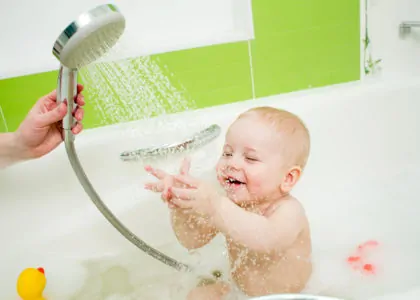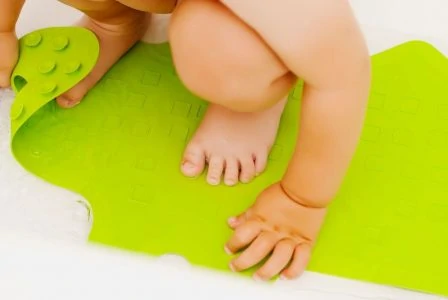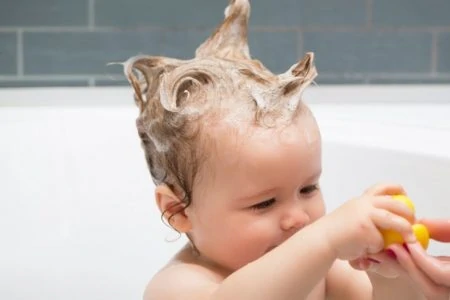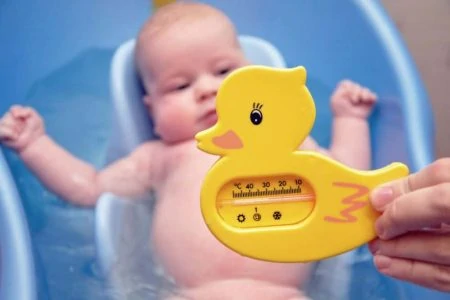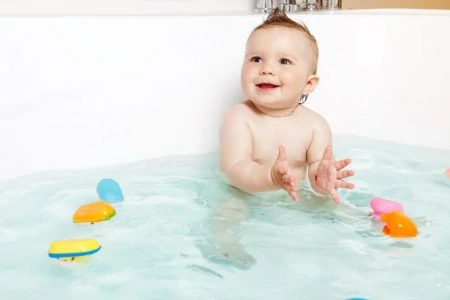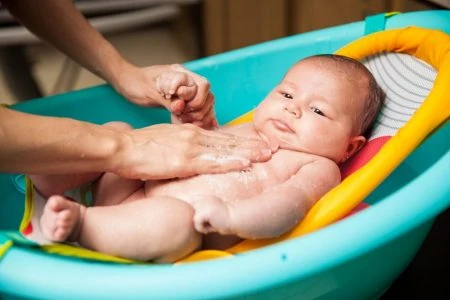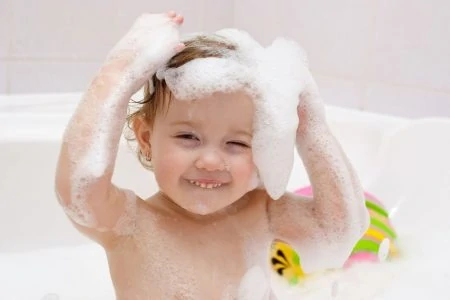Everyone loves the smell of a freshly washed baby, but figuring out the schedule is a different story. Adults usually have a set routine, whether it’s a daily shower or an every-other-day rinse. But babies are different beasts entirely.
Parents often struggle with the balance. Some swear by a nightly tub session to help their little one sleep, while others prefer to keep it minimal to protect delicate skin. Let’s cut through the noise and look at what the medical experts (and experienced parents) actually say about how often to bathe a baby.
Key Takeaways
- Babies: Bathe them about three times a week during the first year; newborns only need sponge baths until the umbilical cord falls off.
- Toddlers: You don’t need a daily scrub unless they are visibly dirty, but frequent hand-washing is a must.
- Skin Health: Daily soaking can strip natural oils and dry out the skin, which often makes eczema worse.
- Immunity: Exposure to everyday germs is actually good for building a child’s immune system against allergies.
How Often to Bathe Your Baby or Toddler
The frequency of baths is ultimately your call. Many children sleep better after a warm soak, so countless parents make it a staple of the bedtime ritual. However, it is important to know that bathing too often can actually do more harm than good.
Generally, once the umbilical cord stump has fallen off, I recommend bathing infants no more frequently than every 2 days. If you have a baby boy who was circumcised, it is best to wait until the area has healed before bathing him (1). Exceptions to less frequent bathing are if your baby passes a very large stool (the kind that leaks out of the diaper), has diarrhea, or has been involved in family activities that are “messier” than usual (i.e., going to the beach).
Editor's Note:
Dr. Leah Alexander, MD, FAAPBabies
Newborns and infants don’t need a daily scrub. In fact, three times a week is plenty during their first year (2). Even at birth, the rules have shifted. Experts now suggest delaying that very first bath until 24 hours after delivery. This wait helps improve breastfeeding success and keeps the baby’s body temperature stable (3).
For now, a solid wipe-down after spit-ups and diaper changes is enough to keep them fresh. Once your little one begins to crawl, you can bump up the bath frequency if you want to.
If you are worried about floor germs as they scoot around, you can wipe their hands frequently. But try not to stress too much; germs aren’t always the bad guys.
Toddlers
Once your baby graduates to toddlerhood (roughly 12 to 36 months), the mess factor increases significantly. This is the age of hands-on exploration. Your child will investigate everything, attempt to feed themselves (messily), and dig in the dirt.
While these activities definitely require cleaning up, you still don’t need to commit to a full bath every night. Instead, focus on teaching your toddler to wash their hands properly with soap, especially after playtime or before meals.
Why Everyday Baths Aren’t Always Ideal
1. Germs are Good
If your main motivation for bathing your baby is to kill germs, you might be surprised to learn that bacteria can actually be beneficial.
Your child’s body is still developing, and that includes their immune system. Exposure to common germs helps strengthen their defenses against viruses and conditions like asthma or allergies (4).
Research even shows that the youngest child in a large family is often less likely to develop asthma. This is likely because they are exposed to more bugs passed around by older siblings early on (5).
Obviously, you don’t want your child to get sick, but total sterility isn’t the goal. Exposure is the only way a body learns to fight.
2. Hair Issues
If you insist on a daily bath, hold the shampoo. Most shampoos strip natural oils from the hair, and those oils are exactly what give hair its healthy shine.
Adults might need frequent washing because our oils trap odors and grime, but babies are different. If you shampoo a toddler too often, you run the risk of drying out their scalp and hair (6). This is particularly risky for kids with coarse or curly hair textures.
Toddlers are magnets for sticky messes, so you will have to wash them eventually. The best approach is to wash the hair only as needed. When you do, use a mild baby shampoo designed to be gentle on delicate strands.
During the first year of life, you may notice a crust or yellow flakes on your baby’s scalp. It can vary from just a few spots to a thick yellow, oily crust that covers most of the scalp and extends down the face and body. If you notice this, your baby has seborrhea or “cradle cap” (7). It is essentially an infant version of dandruff, like older kids and adults may experience. In this situation, daily hair washing with a cradle cap shampoo helps reduce the appearance of seborrhea and its associated itchiness.When the usual baby shampoos do not seem effective, I recommend using a basic dandruff shampoo every other day for one week, being very careful not to get into the eyes. Although using oil on the scalp to loosen the crust of flakes is recommended by some authorities, I find clinically that adding oil just worsens the condition.
Editor's Note:
Dr. Leah Alexander, MD, FAAP3. It’s Time-Consuming
Let’s be real: bathing kids takes a lot of effort. If you have more than one child, the nightly assembly line of baths can be exhausting. Parents shouldn’t feel guilty if they skip bath time because they are too tired or simply don’t have the time.
Safety is also a massive factor. For children under 4 years old, constant supervision in the tub is non-negotiable. A child can drown in just a few inches of water if they slip or get stuck (8).
Even with bath rings or seats, you cannot step away. Those devices are for support, not safety. If you can’t give the bath your 100% undivided attention, it is safer to skip it entirely.
4. Dry Skin
Scrubbing your baby or toddler too frequently can dry out their skin, which can trigger or worsen eczema (9). Infant eczema is a common challenge for parents, and keeping the skin moisturized is key to controlling flares.
It is a balancing act. Not bathing enough can aggravate skin issues, but over-bathing is a common trigger (10). Usually, the water isn’t the main irritant; it is the soap. Sitting in a tub full of suds draws moisture out of the skin, leaving it dry and itchy.
If your child has sensitive or eczema-prone skin, try to limit baths to every two or three days.
Clinically, my top recommendation is a dye-free, fragrance-free moisturizing bar (I like Dove) instead of soap or baby wash. Over the years, I have found this to be less drying of infant skin.
Editor's Note:
Dr. Leah Alexander, MD, FAAPIf you choose to bathe your baby nightly for the routine, keep it short. Use lukewarm water and save the soap for the very end to minimize exposure.
After the bath, pat your baby dry with a towel; never rub. Immediately apply a child-friendly moisturizer while their skin is still damp. This helps lock in the hydration. Be careful with oat-based products if your child has shown food sensitivities to oats, as this could worsen eczema.
Newborn Baths
